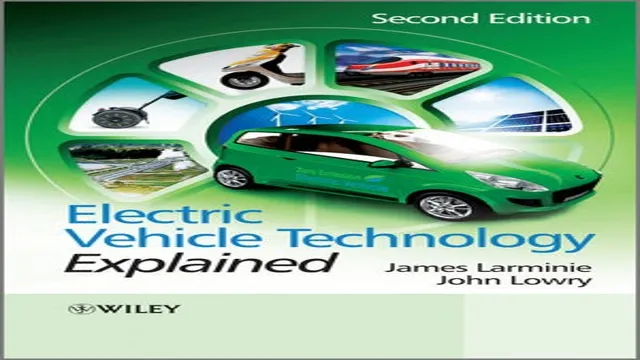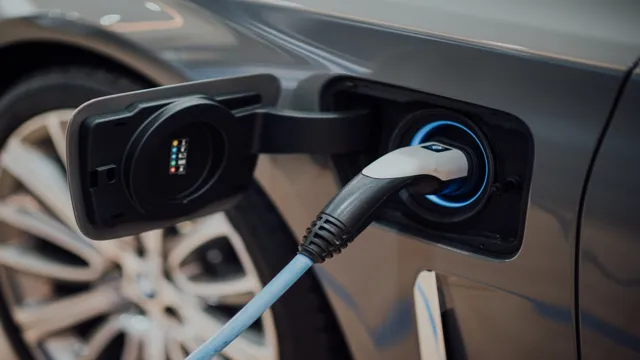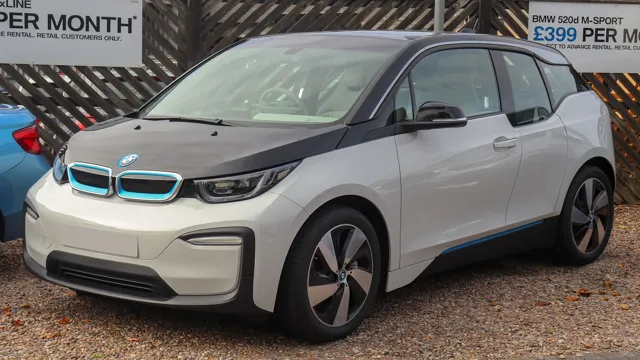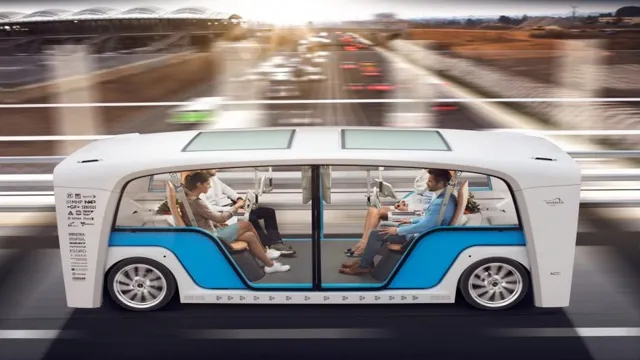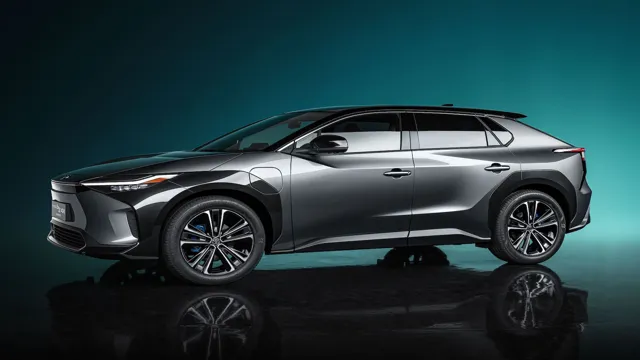Revolutionizing the Roads: Unpacking the Wonders of Electric Vehicle Technology in Cars
Electric vehicles have been around for quite some time now, but it’s only in recent years that their popularity has skyrocketed. This trend is largely due to advancements in technology that have made electric vehicles more efficient, affordable, and versatile than ever before. For those who are still new to the concept of electric vehicles, the idea of driving a car that doesn’t run on gas can seem intimidating.
But fear not, this blog post is your ultimate guide to Electric Vehicles 101! In this blog, we’ll break down everything you need to know about electric vehicles, from how they work to the benefits they offer. We’ll cover the different types of electric vehicles, including hybrids, plug-in hybrids, and battery-electric vehicles. We’ll also explore the pros and cons of owning an electric vehicle, as well as the impact they have on the environment.
Electric vehicles are not only better for the environment, but they are also more cost-effective in the long run. By switching to an electric vehicle, you’ll save money on gas, maintenance, and repairs. Plus, you’ll contribute to a cleaner and greener future.
But don’t just take our word for it, read on to discover everything you need to know about electric vehicles and why they may just be the perfect fit for you!
What is an electric car?
Electric vehicle technology is a rapidly advancing field that is taking the automotive industry by storm. An electric car is a vehicle that runs on electrical power stored in rechargeable batteries, as opposed to internal combustion engines that rely on fossil fuels. This technology has gained popularity due to its significant environmental benefits, including zero-emission and reduced carbon footprint.
Not only are electric cars built to be eco-friendly, but they also offer superior performance and efficiency compared to traditional gasoline-powered vehicles. The key components of an electric vehicle are the electric motor, battery pack, power electronics module, and regenerative braking system. These innovative features work together to power the electric motor, providing a smooth and seamless driving experience.
In conclusion, electric cars are the future of sustainable transportation, offering a cleaner, quieter, and more efficient alternative to gasoline-powered vehicles.
Definition and Working
An electric car, also known as an electric vehicle (EV), is a type of vehicle that primarily uses electricity as its source of propulsion. They are powered by electric motors, which are driven by rechargeable batteries that store electrical energy. These batteries can be charged using a variety of methods, including plugging into a power source or using regenerative braking, which converts the kinetic energy of the car into electrical energy that can be stored in the battery.
Unlike traditional gasoline-powered cars, electric cars produce zero emissions and are much more environmentally friendly. They also require less maintenance due to fewer moving parts, resulting in lower overall costs and a longer lifespan. Overall, electric cars offer a promising future for sustainable transportation and reducing carbon emissions.
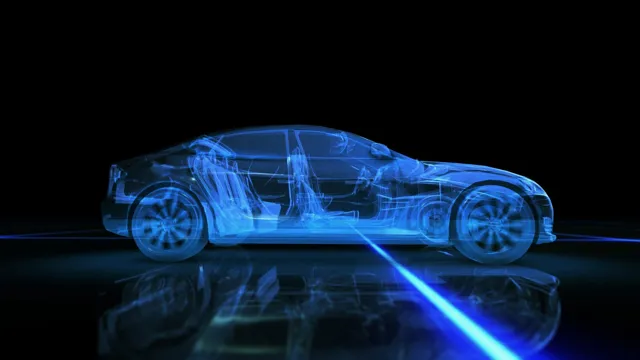
Types of Electric Cars
Electric vehicle technology explained cars have taken the automobile industry by storm, offering an eco-friendly alternative to traditional gas-powered vehicles. There are three main types of electric cars: battery electric vehicles (BEVs), plug-in hybrid electric vehicles (PHEVs), and hybrid electric vehicles (HEVs). BEVs run solely on electric power, and their batteries can be charged at home or through a public charging station.
PHEVs have an electric motor and a small gasoline engine, and their batteries can be charged through an outlet or while driving. HEVs also have a gasoline engine and an electric motor, but their batteries can only be charged through regenerative braking, which converts energy from braking into electricity. The type of electric car depends on the needs and preferences of the driver, but all offer a more fuel-efficient and environmentally friendly option for transportation.
BEVs, PHEVs, and HEVs explained
The world of electric cars can be overwhelming with so many different types to choose from. There are Battery Electric Vehicles (BEVs), Plug-in Hybrid Electric Vehicles (PHEVs), and Hybrid Electric Vehicles (HEVs). BEVs are fully electric with an electric motor as their source of power.
They rely solely on a battery charged by plugging into a power source. PHEVs have an electric motor and a gasoline engine, which can recharge the battery on the go, as well as use gasoline. HEVs, on the other hand, only have a gasoline engine and electric motor but cannot be charged externally or run on electricity alone.
Each type of electric car has its benefits, and the choice depends on a driver’s needs. For example, BEVs are perfect for short daily commutes with enough charge, while PHEVs are great for longer trips and flexibility. Lastly, HEVs are perfect for those who want to reduce fuel consumption without relying too much on charging infrastructure.
In summary, understanding the differences between BEVs, PHEVs, and HEVs is essential to select the right car for you.
EV Technology
Electric vehicles (EVs) work on the principle of using electrical energy instead of gasoline to propel the vehicle. They have become increasingly popular, especially due to environmental concerns and the need for sustainable energy sources. EV technology involves the use of advanced lithium-ion batteries to store energy and power the electric motor.
These batteries are rechargeable and can be charged through a conventional wall outlet or a specialized charging station. EVs are also equipped with regenerative braking systems that convert the energy produced during braking into electrical energy to be stored in the batteries and reused for propulsion. Electric vehicle technology is constantly evolving, with improvements in battery technology, charging speed, and range being the focus of research and development.
As a result, EVs are becoming more efficient, affordable, and attractive to buyers who are interested in reducing their carbon footprint.
Batteries and Charging
Battery technology is a crucial aspect of electric vehicles (EVs) since they rely entirely on battery power to function. The type and quality of the battery used in an EV dictate the range and speed of the vehicle. Lithium-ion batteries are commonly used in EVs, offering high energy density and long service life.
Charging an EV battery can be done using different methods, such as slow charging, fast charging, and rapid charging. The common types of charging stations are Level 1, Level 2, and DC fast charging. Level 1 charging uses a standard 120V electrical outlet and is the slowest method, taking about eight hours to fully charge an EV.
On the other hand, Level 2 charging requires a high-powered charger and can fully charge an EV in about four hours. DC fast charging is the fastest method, and it takes less than an hour to charge a vehicle from 0-80%. However, fast charging can reduce the lifespan of the battery and damage it if done frequently.
Regular maintenance of the battery can help prolong its lifespan, such as avoiding full depletion, avoiding extreme temperatures, and avoiding overcharging it.
Electric Motors
Electric vehicles (EVs) have revolutionized the transportation industry with their advanced technology, and electric motors are at the forefront of this transformation. Unlike traditional combustion engines, electric motors are powered by a rechargeable battery, which makes them more efficient and eco-friendly. The beauty of electric motors lies in their simplicity, they have fewer moving parts, and maintenance costs are significantly lower than that of a gas-powered vehicle.
Additionally, electric motors can deliver incredible power, with instant torque providing an exhilarating driving experience that leaves traditional combustion engines in the dust. Furthermore, electric motors use regenerative braking to recharge the battery when braking, which increases the overall efficiency of the vehicle. The EV technology is rapidly evolving, and we can expect even more powerful and efficient electric motors in the future.
With the rise in popularity of electric vehicles, we can look forward to a cleaner planet and a more sustainable future.
Benefits of Electric Vehicles
Electric vehicles have become increasingly popular due to their numerous benefits compared to traditional gas-powered cars. First and foremost, electric vehicle technology explained indicates that EVs are more environmentally friendly because they produce fewer emissions, which means they are a greener option. Additionally, electric cars are quieter and smoother when compared to gasoline cars, offering a more pleasant driving experience.
Moreover, electric cars are cheaper to operate, with lower maintenance costs since they require fewer oil changes and have fewer moving parts. They also have a longer lifespan than traditional cars, owing to the fact that the electric motor wears out at a much slower rate than a combustion engine. Finally, though electric vehicles are still more expensive than their combustion counterparts, their prices have been dropping in recent years, making them more accessible to the public.
In conclusion, electric vehicles have numerous benefits and are an eco-friendlier, quieter, smoother, and cheaper-to-operate alternative to gas-powered cars.
Environmental, Economic and Safety advantages
Electric Vehicles (EVs) offer multiple benefits compared with traditional fossil-fuel vehicles. They are designed to reduce environmental pollution, help the economy, and improve road safety. EVs are powered by renewable energy sources, lowering greenhouse gas emissions and contributing to a greener environment.
They are energy-efficient and cost-effective, saving fuel costs and reducing the need for frequent maintenance. Furthermore, they are much quieter than traditional vehicles and produce less air and noise pollution. EVs also reduce the dependence on foreign oil and create new jobs in the automobile industry and supporting sectors.
Additionally, they have fewer moving parts, making them safer for drivers and passengers, while offering improved driving experience. With the ever-increasing technological developments, EVs are becoming more efficient, affordable, and widely available, making them a practical and desirable alternative to traditional vehicles. Therefore, it is safe to say that switching to EVs presents a win-win situation for everyone involved – the environment, the economy, and the safety of road users.
Challenges and Future of Electric Vehicles
Electric vehicle technology has advanced massively over the last few years, resulting in the rise of electric cars on our roads. However, like any technology in its infancy, challenges still persist. One of the most pressing concerns is the range of electric vehicles.
While the range of electric cars has improved dramatically, it can still be a limiting factor for drivers planning long journeys. Moreover, the charging infrastructure is still developing, and there are limited charging stations available in some areas. Another challenge is the cost of electric vehicles, which can be considerably more expensive than traditional petrol or diesel cars.
Nonetheless, with the support of governments and advancements in technology, electric vehicles are gradually becoming more affordable. The future of electric vehicles is bright, with the development of more advanced batteries and continued investment in charging infrastructure. As people become more aware of the environmental impact of conventional fuel vehicles, electric cars have become more appealing.
Overall, electric vehicle technology is an exciting and rapidly evolving area that will undoubtedly shape the way we live and move in the future.
Conclusion
Electric vehicle technology is revolutionizing the automotive industry, and it’s an exciting time to be alive. From sleek sports cars to practical family vehicles, EVs are the ultimate way to combine style, power, and efficiency. It’s like having a superpower at the wheel! With lower emissions, reduced fuel consumption, and longer lasting batteries, electric cars are the future of transportation, and they’re here to stay.
So, whether you’re looking to reduce your carbon footprint, save money on gas, or just enjoy the thrill of driving, an electric car is the perfect choice for the 21st century driver. Buckle up, folks–the future is electric, and it’s going to be a wild ride!”
FAQs
What is electric vehicle technology?
Electric vehicle technology refers to the design, development, and production of vehicles that run solely on electric power instead of petroleum-based fuels.
How do electric cars work?
Electric cars use a battery to power an electric motor, which turns the wheels. The battery is charged using an external power source, such as a charging station or a household outlet.
What are the benefits of electric cars?
Electric cars offer a range of benefits, including lower long-term costs, reduced emissions, improved energy security, and quieter operation.
Are electric cars more expensive to buy than gasoline cars?
Generally, yes, electric cars are more expensive upfront than their gasoline counterparts. However, the lower operating and maintenance costs over time can make up for the initial price difference. Additionally, government subsidies and tax incentives are often available to help offset the cost of purchasing an electric car.
